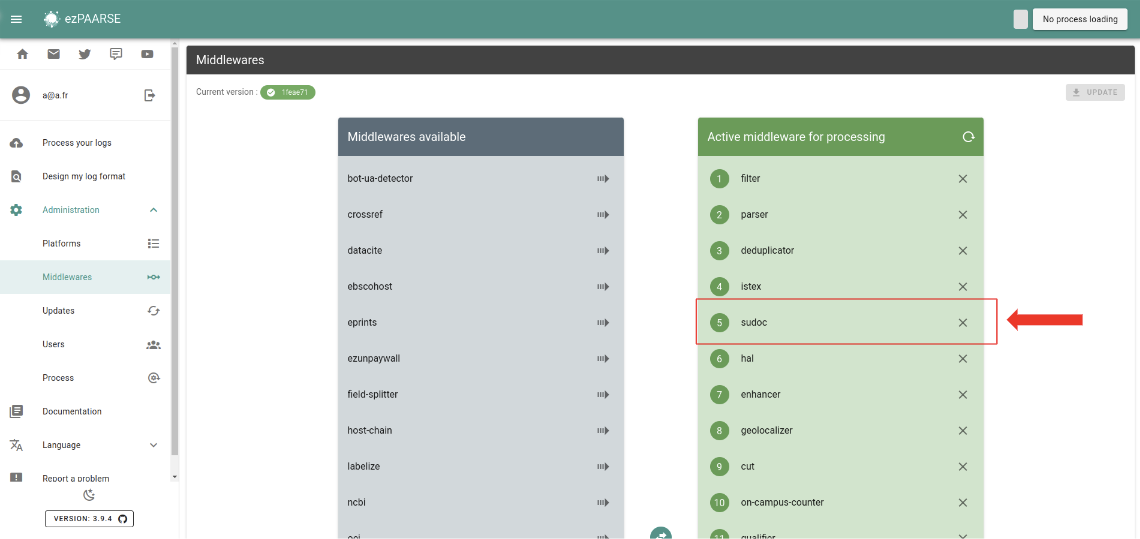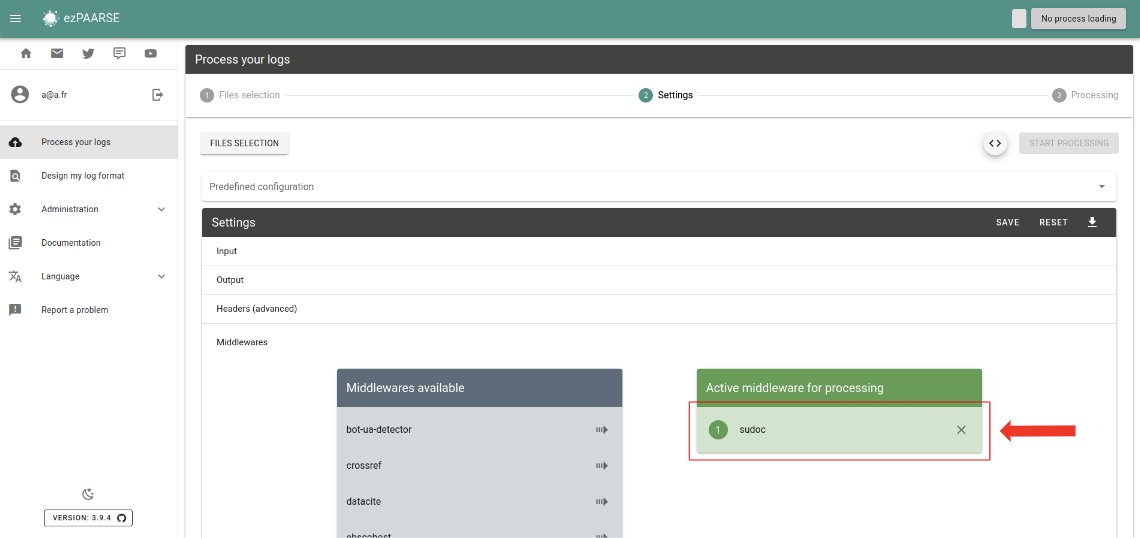# sudoc
Fetches Sudoc (opens new window) data, especially the PPN (that identify Sudoc records).
This middleware is activated by default.
# Enriched fields
| Name | Type | Description |
|---|---|---|
| sudoc-ppn | String | unique identifier used to precisely identify a bibliographic record in the Sudoc catalog. |
# Prerequisites
Your EC needs a print_identifier for enrichment.
You must use sudoc after filter, parser, deduplicator middleware.
# Headers
- sudoc-enrich : Set to
falseto disable sudoc enrichment. Enabled by default. - sudoc-ttl : Lifetime of cached documents, in seconds. Defaults to
7 days (3600 * 24 * 7). - sudoc-throttle : Minimum time to wait between queries, in milliseconds. Defaults to
200ms. - sudoc-max-attempts : Maximum number of trials before passing the EC in error. Defaults to
5.
# How to use
# ezPAARSE admin interface
You can add or remove sudoc by default to all your enrichments, To do this, go to the middleware section of administration.

# ezPAARSE process interface
You can use sudoc for an enrichment process. You just add the middleware.

# ezp
You can use sudoc for an enrichment process with ezp (opens new window) like this:
# enrich with one file
ezp process <path of your file> \
--host <host of your ezPAARSE instance> \
--settings <settings-id> \
--header "ezPAARSE-Middlewares: sudoc"
--out ./result.csv
# enrich with multiples files
ezp bulk <path of your directory> \
--host <host of your ezPAARSE instance> \
--settings <settings-id> \
--header "ezPAARSE-Middlewares: sudoc"
# curl
You can use sudoc for an enrichment process with curl like this:
curl -X POST -v http://localhost:59599 \
-H "ezPAARSE-Middlewares: sudoc" \
-H "Log-Format-Ezproxy: <line format>" \
-F "file=@<log file path>"
← session-id thesesfr →